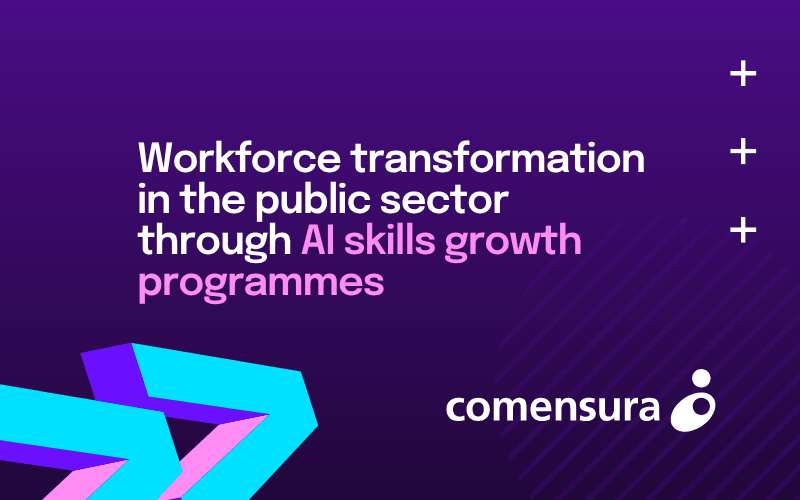

Author
2025-06-05
3 minutes
What is a talent community in recruitment and contingent workforce management?
In today's dynamic world of recruitment, the concept of a talent community has emerged as a powerful tool in the recruitment strategy for organisations aiming to attract, nurture, and retain top talent.
A talent community is a group of individuals who share common interests, skills, experience and career aspirations and are engaged with an organisation in a meaningful and sustained manner. Unlike traditional recruitment processes that often focus on immediate hiring needs, talent communities prioritise long-term relationships, offering mutual benefits to both the employer and the potential candidates.
Building a talent pipeline by building a community
A talent community is a strategic approach to recruitment that involves talent engagement - creating and maintaining a network of prospective candidates who are interested in an organisation. These individuals might not be actively seeking a job at the moment but are open to opportunities and keen on staying connected with the company. The purpose of such communities is to establish an engaged talent pipeline that can be tapped into when suitable positions arise, reducing the time and effort involved in the hiring process.
Key components of a talent community
-
Talent engagement and interaction: Organisations keep the community active and engaged through various means of communication such as newsletters, articles, webinars, social media interactions, and exclusive events. These activities help build a sense of belonging and keep the members informed about the employer brand, as well as their culture, values, and job opportunities.
-
Content and resources: This includes sharing industry insights, career advice, training programmes, and updates about the organisation. By offering relevant and informative content, companies can position themselves as thought leaders and foster loyalty among community members.
-
Networking opportunities: Talent communities provide excellent networking opportunities for members. Through proactive talent engagement such as forums, discussion groups, and meetups, individuals can connect with like-minded professionals, share experiences, and gain exposure to different perspectives.
-
Talent nurturing and development: Another significant aspect of talent communities is the focus on nurturing and developing the members' skills and competencies. Organisations may offer mentorship programs, workshops, and upskilling opportunities to help community members advance in their careers. This investment in personal and professional growth helps in building a robust talent pool ready to take on future challenges.
Benefits of a talent community in workforce planning
One of the strategies for long-term talent pipeline development should include building a talent community, as there are numerous benefits of a talent community in workforce planning.
-
Proactive recruitment: Talent communities enable organisations to adopt a proactive approach to recruitment. By creating and maintaining relationships with potential candidates over time, companies can quickly identify and onboard suitable, engaged talent when a vacancy arises. This reduces the need for a reactive hiring approach and shortens the recruitment cycle.
-
Enhanced employer brand: Maintaining an active talent community contributes significantly to an organisation's employer branding efforts. By showcasing the employer brand, culture, values, and commitment to employee development, organisations can attract high-quality candidates who resonate with their ethos. A strong employer brand also helps in retaining existing employees and attracting passive candidates.
-
Cost efficiency: Investing in talent communities can lead to cost savings in recruitment processes. With a ready pool of pre-qualified candidates, organisations can minimize the expenses associated with advertising, sourcing, and screening for every individual hire. Additionally, the reduced time-to-hire translates into lower operational costs and improved productivity.
-
Retention and loyalty: Talent communities foster a sense of loyalty and belonging among members. By consistently engaging with potential candidates and offering development opportunities, organisations create a positive impression that ensures a good candidate experience and encourages long-term commitment. This loyalty can result in higher retention rates and a more stable workforce.
Talent communities represent a paradigm shift in the way organisations approach recruitment. By focusing on building long-term relationships and continuous engagement, companies can create a robust talent pipeline of qualified candidates, enhance their employer brand, and achieve greater cost efficiency. Despite the challenges, the benefits of establishing and nurturing a talent community make it a worthwhile investment for any organisation looking to stay ahead of the competition in highly competitive and/or high volume talent categories.
As the future of work continues to transform, talent communities will play an increasingly vital role in connecting employers with the right talent and empowering individuals to advance in their careers. Embracing this innovative approach to recruitment will undoubtedly lead to a more dynamic, resilient, and future-ready workforce.
Next steps for talent communities in social care
If you are looking to leverage the power of talent communities in social care, Comensura are here to help integrate them into your strategic workforce planning strategy.
Insights to drive workforce performance
Workforce insights in your inbox
Sign up for our newsletter with the latest workforce management news, insights, analysis and more.
United Kingdom
First Floor, Mulberry House
Parkland Square
750 Capability Green
Luton, LU1 3LU
Australia
Suite 1403
Level 14, 309 Kent Street
Sydney
NSW 2000










